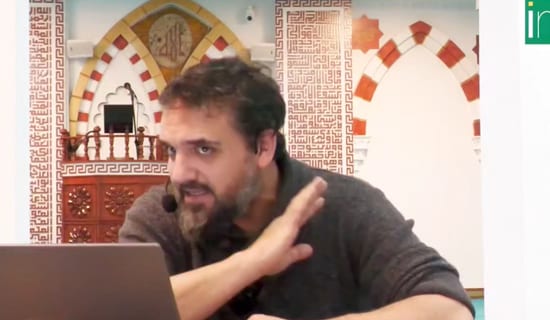A social media campaign underway in Saudi Arabia for the past few weeks, under the hashtag "The September 15 Movement," has called on the public to hold mass anti-regime demonstrations on September 15, 2017, to protest against the widespread political arrests in the country as well as against the grave economic difficulties – poverty, unemployment, and a severe housing shortage.[1] The social media posts in the campaign included information about designated meeting places where the demonstrations were to be held.

Details about a mosque in Jeddah where demonstrators were directed to gather, as tweeted by a Twitter account calling for demonstrations (Source: twitter.com/7arakAlharamain, September 15, 2017)
Following the campaign's tremendous popularity,[2] Saudi authorities acted to prevent the demonstrations, by recruiting leaders of the Saudi religious establishment to call the campaign an attempt to incite civil war, and with threats of harsh treatment of anyone disturbing the peace.[3] The many arrests over the past two weeks in the country, of activists and what it referred to as "cells" involved in activities "benefitting foreign elements... with the aim of fomenting civil war and harming national unity,"[4] and of dozens of popular preachers who have a history of criticizing the regime, are likely aimed at deterring potential demonstrators.[5]
From reports in the Saudi and foreign press, as well as from Twitter accounts encouraging the demonstrations, it appears that the regime's measures proved effective, and no demonstrations took place. Following September 15, numerous articles were published in Saudi dailies praising Saudi national unity and condemning the attempts to organize demonstrations, which they called subversive and a betrayal of the homeland.
Against the backdrop of these articles, a column by Saudi columnist Hamza Al-Salem stood out. He wrote, on September 16 in the Saudi Al-Jazirah daily, to express general criticism of regimes that attempt to restrict freedom of thought and to impose a specific ideology on the public at large. Attempts to do so, he said, are doomed to failure in the era of digital communications; governments' repression of thought prompts the creation of an arena where people can express what they truly think far from government oversight – and some people utilize this platform to express ideas to which "simple folk are receptive, because they are sick of the coercion of thought." Although he did not refer in any way to the September 15 Movement, or even to Saudi Arabia, he did appear, in light of the timing of his column, to be talking about the September 15 movement and the Saudi regime's handling of it.

Hamza Al-Salem (Source: Al-Jazeera, Saudi Arabia, January 26, 2016)
SUPPORT OUR WORK

The following are excerpts from his column:
"The central planning of markets was proven to be a failure in all the communist states and under all the socialist governments. Even more unsuccessful was the central planning of ideologies. Communism only succeeded in imposing its thought on its people by means of fire and iron, and this is true of all ideologies that do not succeed in actualizing themselves and [so] resort to compulsion and coercion by means of brute force, with the help of sycophantic media, [and all of this] enveloped in secrecy and surreptitiousness...
"With regard to the restriction of [freedom of] thought, until recently, [in countries established in the mid-20th century, among them most of the Arab countries,] murder, incarceration, and exile all led to the liquidation of the intellectual class in the first generation of the civil society. Since this is how it is, the [following] generations have been trained within an ideological and thought blockade that serves only a limited group, at the price of backwardness for the countries and poverty for millions of their peoples. Just as advanced [technology] has brought down the cities' [military] defenses, so digital communications in this decade have brought down the restrictions on [freedom of] thought. There is no longer any power capable of imposing a specific ideology or restricting the peoples' [freedom of] thought…
"The restriction of thought by a single element in the digital information era is nothing but a clear and strong call for establishing a larger intellectual arena [apparently a reference to social media] that is beyond the supervision and direction of the governments. Then, some evil and despicable people see it [i.e. this arena] as an excellent platform from which to spread their deviant ideas. Simple folk are receptive [to these ideas] because they oppose the coercion of thought.
"The weakness of the intellectual institutions in the modern era will not be resolved by force – because a government's imposition of an ideology by force, in our era of digital information, will only accelerate the eradication of [this ideology] and strip it of any opportunity to improve its status."[6]
[1] Twitter.com/7arakAlharamain, August 22, 2017.
[2] Thenewkhalij.news, September 7, 2017; al-akhbar.com, September 19, 2017.
[3] Mapnews.com, September 13, 2017; al-akhbar.com, September 19, 2017.
[4] Al-Wattan (Saudi Arabia), September 12, 2017.
[5] Twitter.com/m3takl, September 10, 2017.
[6] Al-Jazeera (Saudi Arabia), September 17, 2017.




